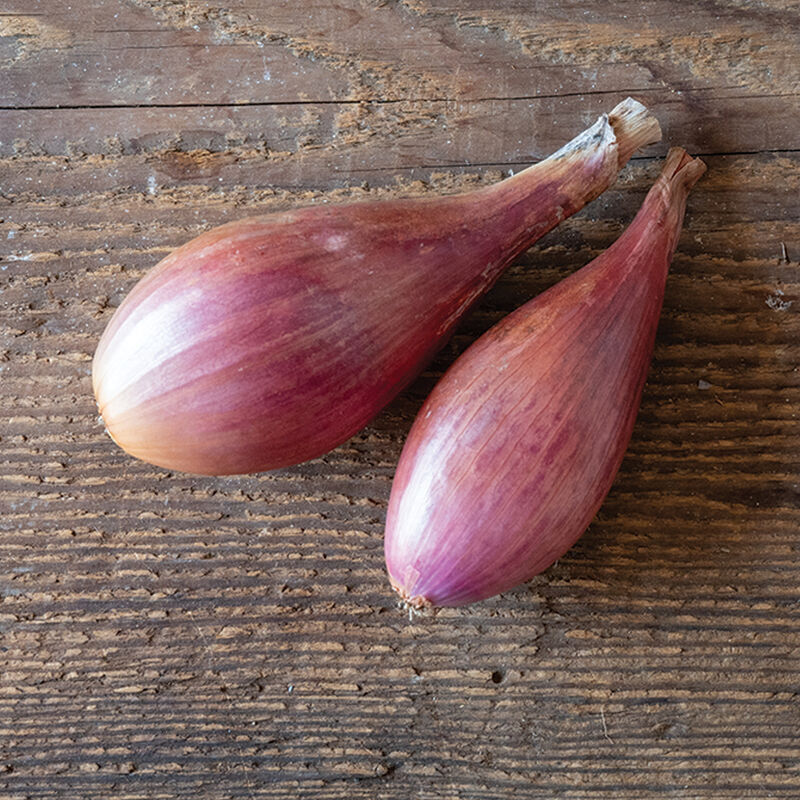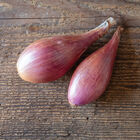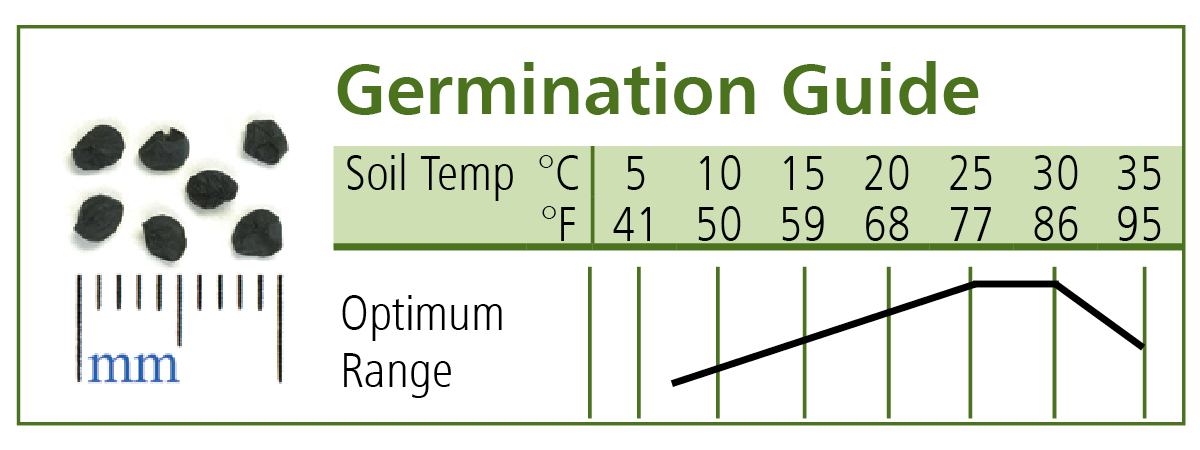Conservor (F1) Shallot Seed
Product ID:2703.112703
Conservor (F1) Shallot Seed
Product ID:2703.112703
Single-bulb shallots.
These reddish-copper shallots have an elongated shape with fewer splits and are suitable for long storage. Conservor does not typically divide into multiple bulbs like traditional shallots. Adaptation: 37–60° latitude. Also available in organic seed and in organic seed with NOP-compliant pelleting.Specs:
- This product does not ship to the following countries: United Arab Emirates, Austria, Australia, Barbados, Belgium, Bulgaria, Bermuda, Bahamas, Switzerland, Cyprus, Czech Republic, Germany, Denmark, Estonia, Spain, Finland, France, United Kingdom, Greece, Hong Kong, Croatia, Hungary, Ireland, Iceland, Italy, Japan, Republic of Korea, Kuwait, Cayman Islands, Lithuania, Luxembourg, Latvia, Malta, Netherlands, Norway, New Zealand, Oman, Poland, Portugal, Qatar, Romania, Saudi Arabia, Sweden, Singapore, Slovenia, Slovakia, San Marino, Thailand, Trinidad and Tobago, Taiwan, Ukraine.
SCIENTIFIC NAME:
Allium cepa var. aggregatumCULTURE:
Shallots require full sun and fertile, well-drained soil with a pH of 6.0–7.0. Sandy loam soils are ideal; raised beds or raised rows are recommended for heavier soils to promote soil drainage. When planted at 2" per plant spacing, shallots are more likely to form a single bulb.DAY LENGTH:
Like onions, all shallots are day-length sensitive. Plant shallots as you would long-day onions.DAYS TO MATURITY:
From direct seeding; subtract 10–15 days if transplants are used.TRANSPLANTING:
In short-season areas, sow seeds indoors in flats in late February to mid-March. Broadcast 1/2" apart and cover 1/4". Tops may be clipped to 5" tall. Transplant to the garden 4" apart, or sow 5 seeds in each cell of 1–1 1/2" diameter plug trays, thinning to 3 per cell. Transplant each cell 6" apart.DIRECT SEEDING:
In April or early May, or as soon as the soil can be prepared in early spring, sow in a 2" wide band, about 2 seeds/in., 1/4– 1/2" deep, rows 12–18" apart. Thin to 2" apart for highest yields in fertile soil. Thin to 3–4" apart for larger shallots.AVG. DIRECT SEEDING RATE:
1 oz./25', 1M/50', 5M/250', 25M/1,250', 580M/acre @ 20 seeds/ft., in rows 18" apart.CROP MAINTENANCE:
Keep shallots well weeded with shallow cultivation. Shallots are shallow rooted and grow best with at least 1" per week of rain or irrigation, especially during the bulbing phase.DISEASE:
Adequate air circulation and crop rotation aids in reducing the risk of foliar diseaseHARVEST:
When necks become soft and tops are falling over, pull and sun-cure at least 2–7 days, depending on weather. Move to a protected location to finish drying.STORAGE:
When dry, clip off tops and roots and store in onion bags or shallow boxes at near freezing and 60–70% humidity.TRANSPLANTS:
Avg. 1 oz./4,900 plants, 1 lb./78,750.SEEDS/LB.: 119,600-125,270 (Avg. 122,500).PACKET:
250 seeds, sows 12' or makes 140 plants.Johnny's is committed to your success, every step of the way.
We want you, our customer, to be 100% satisfied with all of our seeds, tools, and supplies.
If anything you purchase from us proves unsatisfactory, we will either replace the item or refund the purchase price.




